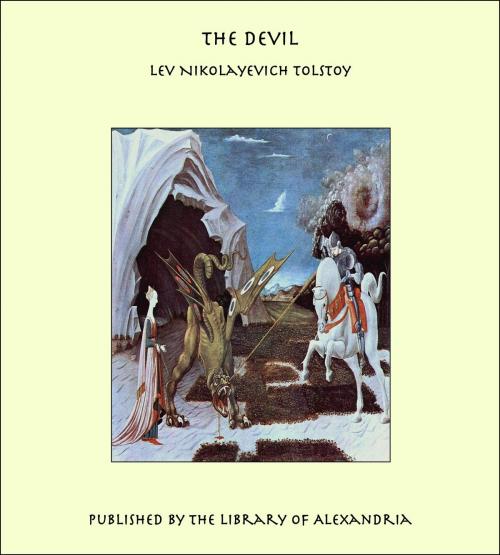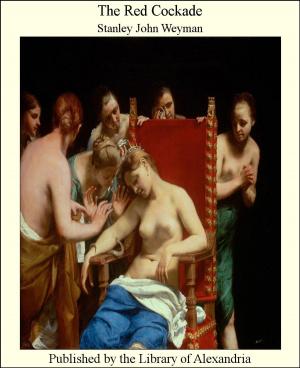| Author: | Lev Nikolayevich Tolstoy | ISBN: | 9781465546340 |
| Publisher: | Library of Alexandria | Publication: | March 8, 2015 |
| Imprint: | Language: | English |
| Author: | Lev Nikolayevich Tolstoy |
| ISBN: | 9781465546340 |
| Publisher: | Library of Alexandria |
| Publication: | March 8, 2015 |
| Imprint: | |
| Language: | English |
A brilliant career lay before Eugene Iretnev. He had everything necessary to attain it: an admirable education at home, high honours when he graduated in law at Petersburg University, and connexions in the highest society through his recently deceased father; he had also already begun service in one of the Ministries under the protection of the minister. Moreover he had a fortune; even a large one, though insecure. His father had lived abroad and in petersburg, allowing his sons, Eugene and Andrew (who was older than Eugene and in the Horse Guards), six thousand rubles a year each, while he himself and his wife spent a great deal. He only used to visit his estate for a couple of months in summer and did not concern himself with its direction, entrusting it all to an unscrupulous manager who also failed to attend to it, but in whom he had complete confidence. After the father’s death, when the brothers began to divide the property, so many debts were discovered that their lawyer even advised them to refuse the inheritance and retain only an estate left them by their grandmother, which was valued at a hundred thousand rubles. But a neighbouring landed-proprietor who had done business with old Irtenev, that is to say, who had promissory notes from him and had come to Petersburg on that account, said that in spite of the debts they could straighten out affairs so as to retain a large fortune (it would only be necessary to sell the forest and some outlying land, retaining the rich Semenov estate with four thousand desyatins of black earth, the sugar factory, and two hundred desyatins of water-meadows) if one devoted oneself to the management of the estate, settled there, and farmed it wisely and economically. And so, having visited the estate in spring (his father had died in Lent), Eugene looked into everything, resolved to retire from the Civil Service, settle in the country with his mother, and undertake the management with the object of preserving the main estate. He arranged with his brother, with whom he was very friendly, that he would pay him either four thousand rubles a year, or a lump sum of eighty thousand, for which Andrew would hand over to him his share of his inheritance. So he arranged matters and, having settled down with his mother in the big house, began managing the estate eagerly, yet cautiously. It is generally supposed the Conservatives are usually old people, and that those in favour of change are the young. That is not quite correct. Usually Conservatives are young people: those who want to live but who do not think about how to live, and have not time to think, and therefore take as a model for themselves a way of life that they have seen
A brilliant career lay before Eugene Iretnev. He had everything necessary to attain it: an admirable education at home, high honours when he graduated in law at Petersburg University, and connexions in the highest society through his recently deceased father; he had also already begun service in one of the Ministries under the protection of the minister. Moreover he had a fortune; even a large one, though insecure. His father had lived abroad and in petersburg, allowing his sons, Eugene and Andrew (who was older than Eugene and in the Horse Guards), six thousand rubles a year each, while he himself and his wife spent a great deal. He only used to visit his estate for a couple of months in summer and did not concern himself with its direction, entrusting it all to an unscrupulous manager who also failed to attend to it, but in whom he had complete confidence. After the father’s death, when the brothers began to divide the property, so many debts were discovered that their lawyer even advised them to refuse the inheritance and retain only an estate left them by their grandmother, which was valued at a hundred thousand rubles. But a neighbouring landed-proprietor who had done business with old Irtenev, that is to say, who had promissory notes from him and had come to Petersburg on that account, said that in spite of the debts they could straighten out affairs so as to retain a large fortune (it would only be necessary to sell the forest and some outlying land, retaining the rich Semenov estate with four thousand desyatins of black earth, the sugar factory, and two hundred desyatins of water-meadows) if one devoted oneself to the management of the estate, settled there, and farmed it wisely and economically. And so, having visited the estate in spring (his father had died in Lent), Eugene looked into everything, resolved to retire from the Civil Service, settle in the country with his mother, and undertake the management with the object of preserving the main estate. He arranged with his brother, with whom he was very friendly, that he would pay him either four thousand rubles a year, or a lump sum of eighty thousand, for which Andrew would hand over to him his share of his inheritance. So he arranged matters and, having settled down with his mother in the big house, began managing the estate eagerly, yet cautiously. It is generally supposed the Conservatives are usually old people, and that those in favour of change are the young. That is not quite correct. Usually Conservatives are young people: those who want to live but who do not think about how to live, and have not time to think, and therefore take as a model for themselves a way of life that they have seen















